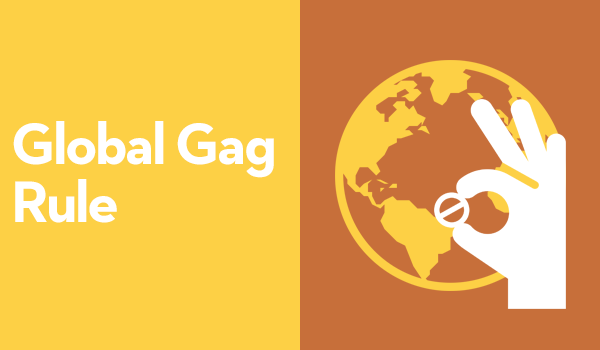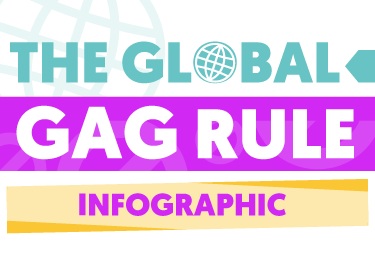


Jackson Women’s Health Organization ruling will impact the protection Roe v. It is not yet known how the recent Dobbs v. In some countries, US-supported service delivery points provide a significant percentage of women’s reproductive health care. While we cannot predict with certainty what will happen under future potential Republican administrations, its historical fluctuation according to which party holds the White House compromises care at health clinics across the globe and increases preventable maternal deaths. organizations that provide safe abortion services or referrals from receiving any U.S. This rule, an Executive Order, instated during Republican administrations and most recently rescinded under the Biden administration, prohibits international, non-U.S. We can look at the impact of the Global Gag rule as one example. It cannot be understated what a profound and irreversible impact the decision will have, not only in the US, but globally as well.

Their children, families, communities, the economy, and our society as a whole suffer too. And this comes at a time when “the COVID-19 pandemic shuttering women-led businesses, limiting women’s employment opportunities, and increasing the gender gap in unpaid care work.” When people who can get pregnant are stripped of their sexual and reproductive rights, they are not the only ones who suffer. With Roe now overturned, these rates will worsen across the board, most dramatically in those states that will immediately enact bans, but also in those states that will not as they become inundated with patients from elsewhere. Inadequate birth care and lack of access to safe abortion services increases the risk of maternal and infant mortality, and the chances of driving families into poverty. These outcomes disproportionately affect Black women who have always experienced higher maternal mortality and lower life expectancy rates. These states have some of the worst outcomes for women and babies in the country: high rates of women with no prenatal care during the first trimester, high rates of babies born with low birth weights and high rates of children without health insurance. In 15 of these states, 40% or more of their counties are characterized as ‘maternity deserts’ with no hospitals, birth centers, or other providers offering obstetric care. Roughly half of US states are likely to ban abortion and include states with already dire maternal health outcomes. With over 50 countries having liberalized abortion laws since the 1990s, tens of millions of people who can get pregnant in the US will face greater legal restrictions than those in many other countries, including Argentina, Ireland and Benin. will reverberate across the world, impacting the lives of people that can get pregnant and all who love them, and we must speak up. We can unequivocally state that the devastation caused by the overturning of Roe in the U.S. We have had abortions and are grateful for them. We have lived and worked all over the world. We are midwives, mothers, policy-influencers, researchers, technical experts, and trauma survivors. As leaders in global health, we are outraged by what we see happening in this country and terrified of the continued impact it will have here, and on the rest of the world. With one in four American girls and women under the age of 45 having had an abortion, chances are you or someone you love has had one. Your partner, your child, a parent, friend, coworker, you. Take a moment to think about all the people in your life who can get pregnant. By guest contributors Laura Fitzgerald, Stephanie Gallagher, Rena Greifinger, and Lyudmila Nepomnyashchiy (WomenLift Health Leadership Journey, US 2021 Cohort)


 0 kommentar(er)
0 kommentar(er)
